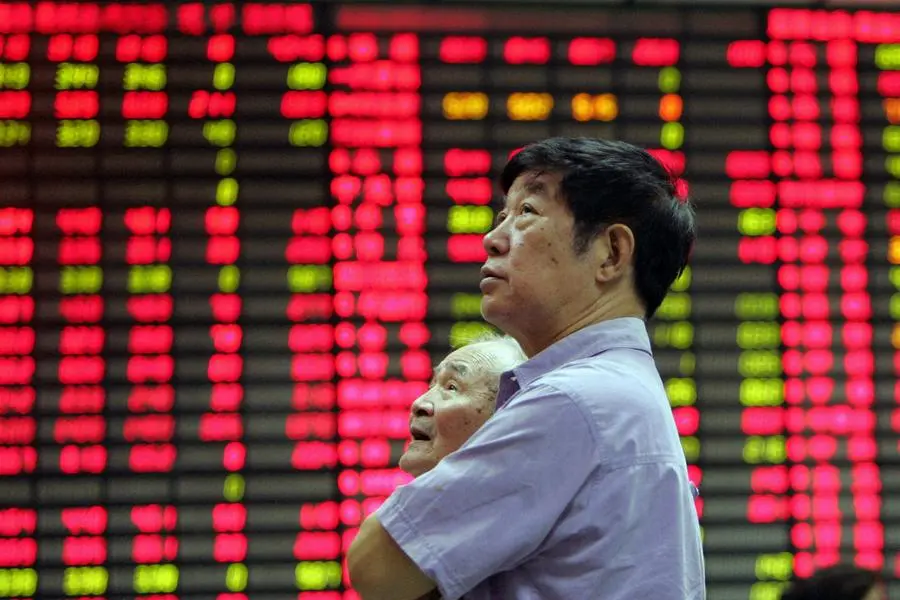PHOTO
Most emerging market stocks started the week lower after disappointing China economic data, while Pakistani equities traded at record highs and investors assessed the fallout of a revised budget in Kenya.
China stocks .CSI300, .SSEC ended flat on Monday and Hong Kong equities .HSI logged their biggest one-day drop after the economy grew much slower than expected in the second quarter, prompting downward revisions for annual growth by brokerages J.P.Morgan and Goldman Sachs.
Attention was also on the once-in-five-years 'Third Plenum', due to end on Thursday, where markets hope for some efforts to manage China's vast property crisis, boost domestic consumption and revitalise the private sector.
"It remains the case that China is taking pragmatic steps to address the problems it can fix, but at nothing like the pace foreign investors or net commodity exporters wish to see," said Hasnain Malik, head of equity research at Tellimer Research.
MSCI's index tracking bourses in developing economies .MSCIEF slipped 0.2%, while an index tracking currencies .MIEM00000CUS was flat. Traders assessed political developments in the U.S. and the implications of a second Donald Trump presidency. MKTS/GLOB
In south Asia, Pakistan's benchmark index .KSE rose 1.7% to hit a record high after the International Monetary Fund (IMF) and the country reached a staff level agreement (SLA) for a $7 billion, 37-month loan program.
The index has soared 30% this year and has almost doubled since Pakistan signed its last SLA for the $3 billion standby arrangement.
India's main stock indexes .NSEI, .BSESN also traded at record highs. Quarterly earnings were in focus along with the new government's annual budget expected on July 23, where a private lender expects the country to cut its current year's gross market borrowings after a better-than-estimated surplus transfer from the central bank.
Meanwhile, yield on Kenyan sovereign bonds KE2YT=RR, KE5YT=RR slipped between 5 and 13 basis points (bps) after the government said it plans to cut annual spending by 1.9% and widen the fiscal deficit to 3.6% of GDP, weeks after it was forced to roll back tax hikes due to mass protests.
Most currencies in eastern and central Europe were tepid against the euro. The forint EURHUF= inched up 0.2% ahead of remarks on monetary policy from the Hungary's deputy central bank governor.
Elsewhere, the shekel inched up 0.1% against the dollar ahead of June inflation data and against the backdrop of talks of a Gaza ceasefire, while Rwanda's franc EURRWF= was flat against the euro as elections were underway.
For GRAPHIC on emerging market FX performance in 2024 http://tmsnrt.rs/2egbfVh
For GRAPHIC on MSCI emerging index performance in 2024 https://tmsnrt.rs/2OusNdX
China's Q2 GDP grows slower than expected https://reut.rs/4cIeKwO
(Reporting by Johann M Cherian in Bengaluru; Editing by Arun Koyyur)





















